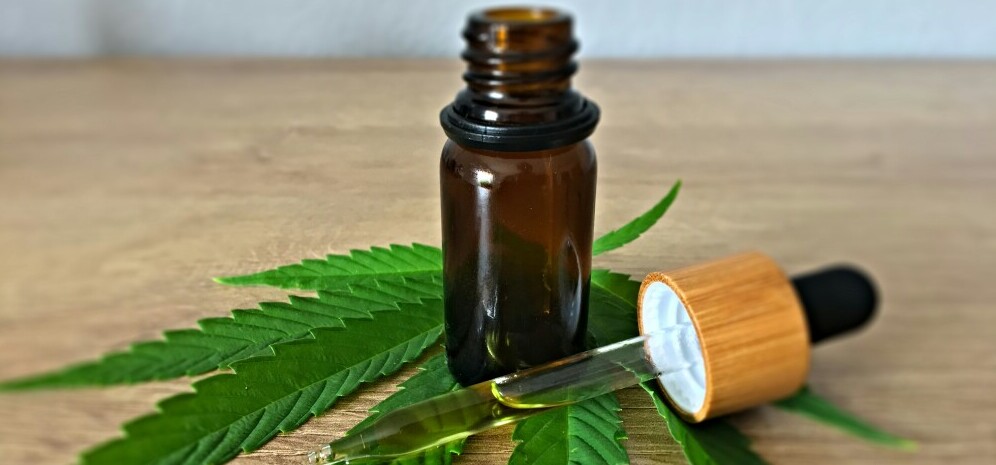Sleep isn’t just a luxury; it’s fundamental to our health. It’s the body’s version of a reset button, helping us process information and physically recover. When sleep’s disrupted, everything from your mood to your immune system can take a hit, and nobody’s got time for that.
Did you know the body has a little-known network called the endocannabinoid system (ECS)? Think of it like an internal communications hub that plays a role in managing sleep and moods. The ECS consists of receptors scattered throughout your body that keep things like sleep and appetite in check. It’s been gaining attention for its quirky habit of interacting nicely with compounds in cannabis, such as CBD.
CBD, short for cannabidiol, is a non-psychoactive compound found in the cannabis plant. Unlike its infamous cousin THC, CBD doesn’t get you zooted. Instead, it might just be a friend to your ECS, potentially helping to regulate sleep and bring serenity to a chaotic mind.
We’re talking about everything from good old-fashioned insomnia to conditions like restless leg syndrome and sleep apnea. CBD’s rising as a potential aid for those counting sheep without success, offering some hope to the sleepless among us.
Benefits of CBD Oil for Sleep Improvement
When stress and tension have you tossing and turning, CBD oil might just put those worries to bed. It’s known for promoting relaxation, like a deep exhale after a long day, helping ease the mind into a more restful state.
Insomnia got you staring at the clock all night? CBD could be your secret weapon to finally catching those elusive z’s. By potentially calming the nervous system, it might help reduce sleeplessness and improve overall sleep quality.
For folks dealing with REM sleep behavior disorder, where they act out their dreams, CBD oil steps into the ring. Emerging research suggests it may help manage those symptoms, creating a safer snooze environment.
There’s a growing pile of studies backing CBD’s sleep-enhancing reputation. From reducing anxiety to bolstering REM sleep time, the evidence hints that CBD could be a gentle nudge towards a better night’s rest.
How to Choose the Right CBD Oil for Your Sleep Needs
Choosing the perfect CBD oil can feel like navigating a maze, but it doesn’t have to be a headache. The first step is knowing the types: full-spectrum, broad-spectrum, and isolate. Full-spectrum CBD contains a range of cannabinoids, including tiny amounts of THC, while broad-spectrum has all that goodness minus the THC. Isolate is pure CBD, stripped of extras.
When you’re shopping, quality should be your North Star. A good bet is sticking with brands that offer third-party lab testing results. This ensures what’s on the label matches what’s in the bottle, without any shady surprises.
Think about your needs and lifestyle when picking out your CBD fix. Are you after quick relief? Go for a tincture or vape. Prefer a longer-lasting effect? Maybe capsules or edibles are your style.
Start with a low dose if you’re dipping your toes into the CBD pool, then adjust as needed. Rome wasn’t built in a day, and neither is your perfect dosage. Keep track of your sleep and how you feel to dial in the right amount for you.
Safety Considerations and Potential Side Effects of CBD Oil
Before jumping on the CBD bandwagon, it’s wise to consider its safety and potential side effects. Though generally well-tolerated, CBD can cause some people to feel sleepy or experience changes in appetite. Keeping an eye on how your body reacts is always a smart move.
Another thing to keep in mind is how CBD interacts with other medications you might be taking. It’s all about that balance, so chat with a healthcare provider who gets CBD if you’re on prescriptions.
The legal landscape around CBD is still a little confusing, so it’s key to buy from reputable sources. Quality checks and a reliable vendor can go a long way in ensuring you’re getting the real deal.
Thinking you’ve hit a wall with sleep? Start small. Begin with a lower dose and gradually increase if needed, all the while keeping tabs on how it’s affecting your sleep quality. Tune in to your body’s signals and adjust as you find your sweet spot.

